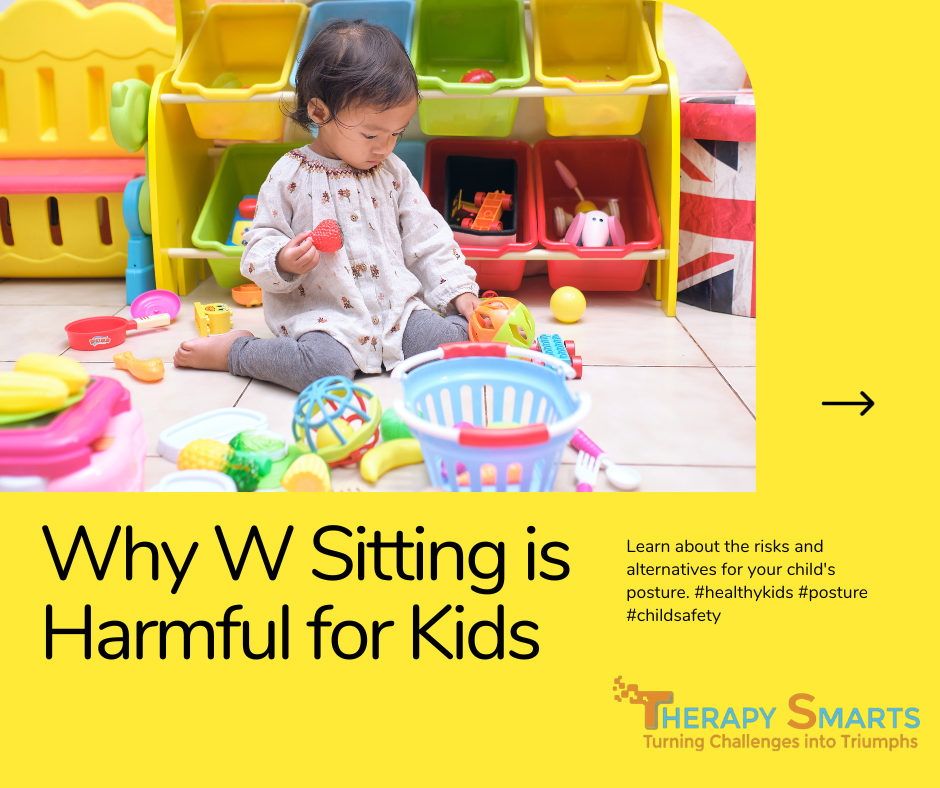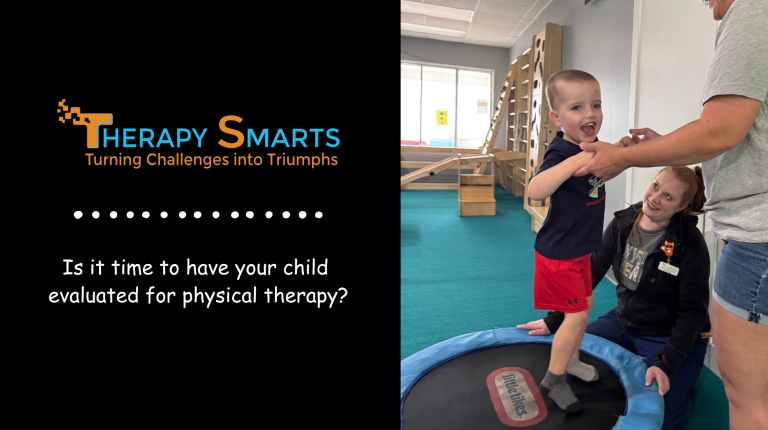by C. Marissa Pozella-Burling, PT, DPT
Are you noticing your child frequently sitting with their legs forming a ‘W’ on the floor? It may seem like just another cute, child-like position, but there is more to W-sitting than meets the eye. At Therapy Smarts, a thriving pediatric therapy clinic nestled in the heart of Durham, NC, we are committed to unraveling the mysteries behind such habits, offering unparalleled physical therapy services tailored just for your little one.
The Puzzling World of W-Sitting
In the W-sitting position, a child’s bottom and legs fully touch the ground, creating a wide base of support. While this might initially seem advantageous, providing an effortless balance, it subtly curbs the essential development of core strength and balance reactions in children.
Why W-Sitting is a Hidden Adversary
Despite its seemingly harmless appearance, W-sitting can usher in a cascade of developmental issues, such as:
– Decreased Core Work: This position may make balancing easier but compromises the core muscles’ activity, leading to weaker core strength.
– Limited Reach and Mobility: The W-position restricts the child’s ability to shift their weight from side to side, limiting their ability to reach out, grab, and engage fully during play.
– Postural Concerns: The habit may culminate in poor posture, in-toeing (“pigeon-toed”), and decreased trunk rotation due to restricted mobility in the hips and trunk.
Nurturing Typical Sitting Habits with Physical Therapy
At Therapy Smarts, we champion the cause of nurturing optimal developmental conditions for your child. Physical Therapy (PT) becomes a beacon of transformation, fostering typical sitting habits such as criss-cross applesauce sitting or legs-out-in-front sitting, promoting:
-Strategic Development: Our PT services curate individual strategies encouraging your child towards developmentally favorable sitting positions.
-Muscle Flexibility: We dedicate ourselves to recommending stretching exercises that aim at resolving muscle tightness arising from persistent W-sitting.
Proactive Tips for Parents
Empower your child’s developmental journey with these proactive tips:
– Promote Alternate Sitting Styles: Encourage habits like criss-cross applesauce sitting or having legs stretched out in front.
– Use Support: If needed, utilize an ottoman or a small chair to support and cultivate a habit of typical sitting styles.
Concerned about your child’s sitting habits? Let Therapy Smarts guide the way to a flourishing developmental path for your child. Connect with our compassionate team of experts today at 919-378-1340 and unlock a realm of personalized, transformative physical therapy services.






